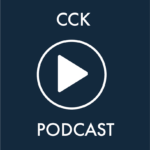Cookies help us deliver the best experience on our website. By using our website, you agree to the use of certain cookies. To find out more, view our Privacy Policy. Clicking the escape key will accept all cookies.
Manage CookiesWhen you visit web sites, they may store or retrieve data in your web browser. This storage is often necessary for basic functionality of the web site or the storage may be used for the purposes of marketing, analytics, and personalization of the web site such as storing your preferences.
Essential Analytics Functional Advertising



























